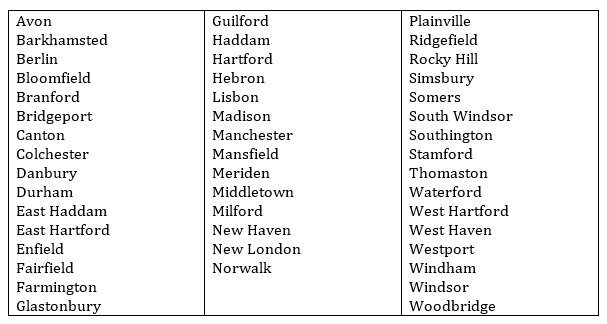
In an effort to live up to the “Connect” portion of Connecticut’s name, 46 of the state’s municipalities have signed up for a project that will drastically increase broadband speeds and reduce costs for business, universities, and consumers through an assortment of public-private relationships. The 46 cities, representing half of the state’s population, place Connecticut at the forefront of becoming the first gigabit state in the United States.
The project was spearheaded in September by Hartford, New haven, and Stamford, after the three cities invited other municipalities to join the CTgig Project, a proposal that seeks to establish a massive 1 GB network by creating opportunities for fiber network builders and ISP to improve Internet infrastructure. Since the plan’s initial announcement, the 43 cities listed below have also opted in, officials announced on Dec. 18, 2014.

“We’re thrilled that so many cities have joined the effort,” said New Haven Mayor Toni Harp. “This clearly demonstrates a high demand by cities for next-generation infrastructure to drive economic growth and social progress thru the entire state.”
The notion of the gigabit city was first introduced by Google with the announced of its Google Fiber network, a plan to institute a 1 gigabit/second city-wide infrastructure, but the notion of an entire gigabit state was unprecedented.
Connecticut’s goal is to establish a cluster of cities/towns and institutions along the central portion of the state to create a mega-fast network that will attract business and research. According to the December 17’s announcement, the municipalities will not invest in the network fund directly, but offer support to private companies, cables providers, and ISP, through favorable regulatory policies and easy access to utility poles.
Advocates of laws restricting state broadband projects claim that such laws protect taxpayers from pork barrel spending, whereas critics argue that such laws often serve the machinations and interests of big corporates such as Comcast and AT&T. It’s too early to say whether the CTgig project will work, but the next step of the process is for private companies to submit proposals of their own as to how to build out the network.
Source: CT.gov
Advertisement
Learn more about Electronic Products Magazine





